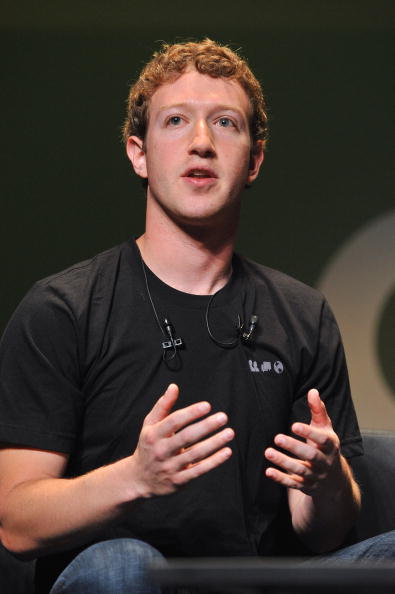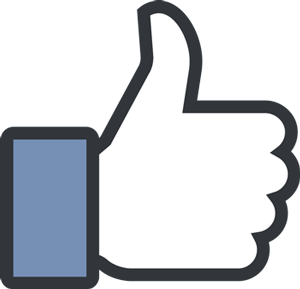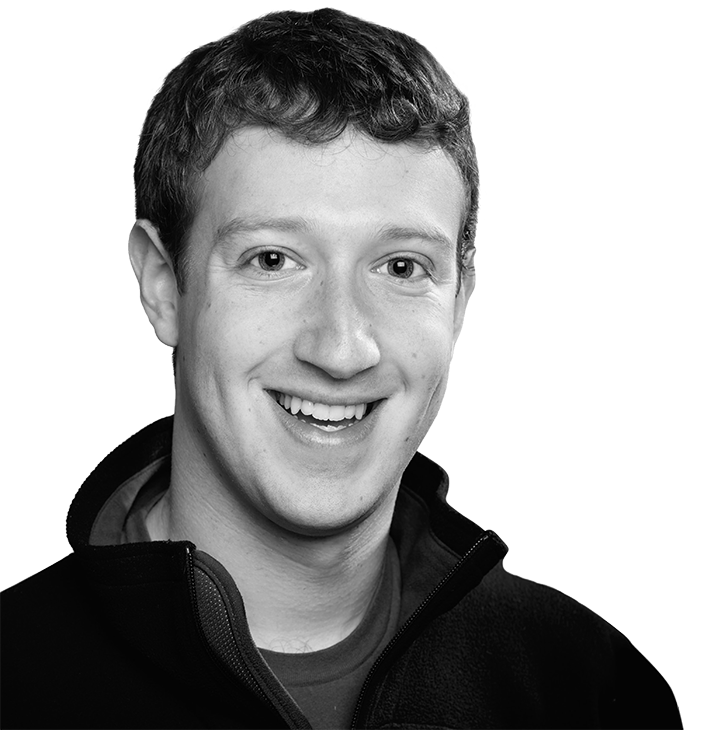
Source: Getty Images" (June 23, 2010)
An Accident Arriving From the Weakness of Others
By Nick Parish



"Mind," he began again, lifting one arm from the elbow, the palm of the hand outwards, so that, with his legs folded before him, he had the pose of a Buddha preaching in European clothes and without a lotus-flower—"Mind, none of us would feel exactly like this. What saves us is efficiency—the devotion to efficiency. But these chaps were not much account, really. They were no colonists; their administration was merely a squeeze, and nothing more, I suspect. They were conquerors, and for that you want only brute force—nothing to boast of, when you have it, since your strength is just an accident arising from the weakness of others. They grabbed what they could get for the sake of what was to be got. It was just robbery with violence, aggravated murder on a great scale, and men going at it blind—as is very proper for those who tackle a darkness. The conquest of the earth, which mostly means the taking it away from those who have a different complexion or slightly flatter noses than ourselves, is not a pretty thing when you look into it too much. What redeems it is the idea only. An idea at the back of it; not a sentimental pretense but an idea; and an unselfish belief in the idea—something you can set up, and bow down before, and offer a sacrifice to...
Conrad's Heart of Darkness opens on the yacht Nellie as it floats down the Thames, a group of five men, the narrator, the Director of Companies, the Lawyer, the Accountant, and the contemplative Marlow, bound on a pleasure cruise away from the gloom of London. As they wait on the changing tide, Marlow's tale bears witness to the litany of dehumanizing encounters he experiences in the African jungle on his search for a rogue corporate agent.
In this Saturnine preamble, Marlow traces the darkness at the end of the Thames from the Romans to more modern British explorers, all of whom floated down the river bearing "the dreams of men, the seed of commonwealths, the germs of empires."
Marlow stands as the vanguard of the great British systematization of what the Belgians and others had initiated, a vast empire washing over the first wave of colonialism. Marlow’s Buddha is of the ledger and catalog, a double-entry dharma merchant, that will slowly and surely come to push out the weigh-station and the flog in colonial hinterlands across the globe.
Riviera and River
To watch the town of Cannes transform in the days around the Cannes Lions advertising festival is to see the approach of another resource-snatching monster, this time gobbling up human attention. June 2010 saw the same a gaudy mix of international tourists and advertising professionals, the former enjoying cheap beachside croques monsieur and sticking their heads through the Brad and Angelina cutouts, the latter doing the same, but "for work," oversized lanyards fluttering in the sea breeze. Later it was on to marvel at the Picassos at the Colombe d'Or and wondering whether they’d wind up quaffing rosé on the yacht with the whale foreskin upholstery later that evening.
Official festival business is conducted inside the Palais, in the ad industry's most gaudy simulacra of Hollywood, where for several decades many a creative director has seen their "films," (how the ultra pretentious refer to television advertising) screened and lauded in the same municipal complex as the town's Film Festival, surely farting through the same seats in the Grand Théâtre Lumière as Kirk Douglas.
If they can be bothered, once they've shaken off their hangover, the ad folks go for a daytime of lectures on creativity, from peers, or, purloined celebrities, lured to town to chat about vague topics like "music" or "rebel culture". One wonders if the same selective recognition marketers rely on worked its fuzzy magic on the celebs, and they were lured to town because "Cannes." Did Patti Smith or Iggy Pop arrive truly understanding they'd be using their image to stand up a London ad agency as a font of originality to its peers, a cruder version of the osmosis by which they endorsed products?
The Buddha of Attention
In much the same way as Marlow aboard Nellie, Zuckerberg sat calmly before the Cannes audience with little to prove, no late-career surge to sell. It was most likely one of the largest collections of not only users but customers he had yet spoken to. Advertisers, creatives, planners, Director, Lawyer, Accountant, tasked with making decisions on behalf of the attention of hundreds of millions of other users. Together, they gathered to ask one question: How, oh orchestrator of zeitgeist, do we make people pay attention to us?
Zuckerberg's Marlow-figure brought Facebook's vision, the bureaucratic "human-centric" efficiency organizing the world's attention into a vast sea of synchronization. The mission? To replace what had gone before, the brutal conquest of consciousness by mass media cudgel. His worldview was one of vast, scaled product infrastructures to support the corralling and ultimate monetization of the attention of millions of souls.
For all the cold logic and efficiency his business would soon clasp around the rag trade of human attention, Zuckerberg, along with his handlers and entourage, misjudged the Cannes affair at first, perhaps not grasping the strictness of the pecking order.
Before he was meant to speak, the group arrived at the main entrance to the Palais' conference facilities, where dozens of attendees, including this reporter, waited in the vestibule nearby to enter the auditorium to watch the talks. Of course, the security services impeccably informed the group attempting to head for a VIP area that "it is impossible" to enter, for they did not have conference badges, which were to be acquired first in the basement area. The entourage had failed to realize there was an entirely separate series of narrow passageways in the rear of the building, where presenters and their support staff could be hustled fore and aft without revealing themselves to the conference's eager card-pressers and looky-loos.
There is no more despairingly deployed "but, do you know who this is?" than that delivered to a Frenchman-in-charge by a big shot's bagman, when said big shot doesn't have his ducks in a row. This is a common, sorry sight during the Cannes Lions, when some doors simply don't open for you, despite your VIPness. When you're outside, you're very outside.
But then and there, despite being a major fixture of the day's schedule, and it nearing his call time, security wouldn't budge. While celebrated and idolized, Zuckerberg remained outside of the norms of the world he would soon reshape. The Zucktourage had to head back out onto the avenue until someone could dredge up the email that told them where to go.
Once he had been guided to the stage, Zuckerberg settled down to a short Q&A session with Advertising Age's editor Abbey Klaassen. They exchanged the usual updates: global rollout, different ways people use the platform in different places, path to monetization and IPO. Will you reach a billion users by the end of the year?
Like any ham-and-eggs guru, Zuckerberg talked without saying much. Friends and family. Community. Platform. Personalize. Product. Value. Mark got his only audience chuckle of the day from the audience when he suggested running a public company shouldn't be much more difficult.
But ham-and-eggs was an improvement for Zuckerberg. He had a few notable screw ups under the hot lights on his resume already. Earlier that June, Zuckerberg had been a picture of torment at the D5 conference in Munich, experiencing a Perspiration Event on stage while Kara Swisher turned the screws. An exquisite analysis of this event was prepared for volume one of this journal in “Sweaty Zuckerberg and Cool Computing” by Mél Hogan.
As if shucking a chrysalis, sans hoodie, by the sea, with a few more days in Europe, Zuckerberg was collected, on-message, and well-lit, having grasped the core of the idea, in Conrad's words, "what redeems it."
The subtle militarism in Zuckerberg's garb continued, having been revealed awkwardly mid-interview at D5, with his Graph / Platform / Stream T-shirt playing Triple Canopy to the earlier Knights Templar-meets-Affliction design motif. This subtler sketch featured three logos, each of the core elements of the Facebook service. Jeans and a pair of curvy running shoes completed his outfit, a simple tell, given the predilection of speakers to Riviera-appropriate sartorial flash when they rock up at Cannes.
(A famous episode starred one sharp-cheekboned platform CEO, a pair of sheer white pants, and a communications associate hastily dispatched to the nearby Monoprix for other layering options once it was determined the stage lighting and the executive’s je ne sais quoi would overshadow his message of robust audience engagement opportunities with his pixel-measured product units.)
Banality at Scale
But as far as systematizing the quest to extract the ultimate vast untapped natural resource, human attention, Zuckerberg’s comments themselves were largely beige. We were in the earliest stages of the primary schooling of attention training, with the rise of Zynga's casual games like FarmVille, which, as Zuckerberg pointed out at one point in his conversation, had gained five million users in its debut week.
“Most things don’t grow that quickly.” According to Zuckerberg, this time it’s because of a simple design philosophy: “built around people."
"For all these major verticals and industries, there are a lot of new products that come out built from the ground up, with your friends, with people at the core, in this personalized way. And those apps are going to be systematically be more engaging than what we have today."
Klaassen, a former colleague, is an adept interviewer, and knew she had to deliver what the audience wanted before getting to the tougher questions. Toward the end of the interview she asked about the antagonism between Facebook and developers.
At the time, developers building things in the marketing world were thought of as genuinely second-class to engineers at fellow platform companies like Zynga. They found themselves consistently irked at the seemingly arbitrary changes in the Facebook platform which would impact their client projects, as Big Blue moved through its Move Fast and Break Things phase.
Whether he knew it or not, in his deflection Zuckerberg hinted at the future of Facebook and the two major partners it had in developers and advertisers: "The way we want to model [the developer community] is how we built the community around marketing. It’s a similar dynamic."
Like and Switch
Only a few years later Facebook would be pushing Likes as a way for brands to accumulate fans on the channel. The model was simple: buy Likes and you'll have an open channel to converse with your fans. And marketers acquired them in droves, pushing content through the channel, promoting it, and appending their button and tracking code to content on their own platforms, all to drive the Like. Facebook changed the rules, though, forcing them to pay to activate those likes, and, later, to penalize their content in the News Feed if it wasn't engaging enough. In hindsight, Zuckerberg’s dynamic meant "get them hooked on our audiences, then make them pay to access them." The rules, invisible, different for all, seemingly arbitrary, decided who was in and who was out.
Major speakers at Cannes are often treated to a post-presentation debrief-style video. In this case, Mark Zuckerberg talks to Cannes Lions TV about why it's great to be him".
Zuckerberg is asked, in the icebreaker, “what’s the best thing about being you?” His answer is not “I’m CEO, bitch”, the phrase his business card in an early phase of the company formally proclaimed, but rather a re-run of the same material he'd used on-stage, that it's such an honor to work with so many great people, and help families stay connected.
This idea of Facebook as a kinship network still had some miles left on it. Later in the day, the festivities moved to the awards portion, where campaigns were lauded for their creativity. Zuckerberg showed up to receive the Media Person of the Year Award, bestowed on "a prominent personality who is an influential figure in the development of today’s media landscape, ultimately playing an integral part in shaping the future of the advertising industry."
For a few brief years, creative marketing experiences on the Facebook platform that now feel icky post-Cambridge Analytica would go on to dominate the digital categories at Cannes, like Intel's Museum of Me, a browser-based mashup of This is Your Life and Gattaca that ingested your data and spit it out in a ruminative cluster bomb of nostalgia.
But the "integral part" Facebook would inevitably play in the internet advertising industry would go on to be that, along with Google, of duopolist. In 2010, Facebook had reported $764 million in revenue for the prior year. At the end of 2017 it had earned $40 billion in the year. Last year, together with Google it accounted for 84% of digital market spend worldwide.
As the backstage post-interview interview drew to a close, a patronizing Zuckerberg gave the star-speaker nod when asked what other talks he would be looking forward to, saying "there's a lot of a lot of people who are really amazing so I don't want to single anyone out."
What did he want to see next year at Cannes?
"Maybe more of the outside."
